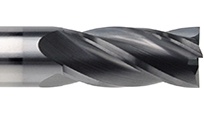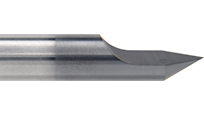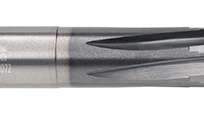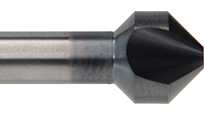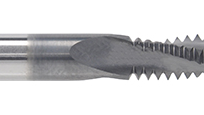Carbide vs. HSS End Mills: Which is Right for Your Machining Needs?
Comparing the Benefits and Applications of Carbide and HSS End Mills for CNC Machining
End Mill - Drill - Reamer
We are proud to offer the products listed in our catalogue. To help our customers experience first-hand the quality and reliability of our tools, we invite you to review our catalogue and request samples. This initiative reflects our confidence in the superior performance of our products and our commitment to customer satisfaction.
Should I Use Carbide End Mills or HSS End Mills?
When choosing between Carbide and HSS end mills, the decision depends on the material, machining speed, and budget.
Carbide End Mills
Carbide end mills are extremely hard, offering superior performance and tool life, especially for high-speed cutting and hard materials.
Advantages:
- Higher hardness and wear resistance.
- Ideal for high-speed machining and hard materials.
- Longer tool life.
Disadvantages:
- More brittle than HSS, prone to breakage under shock.
- More expensive.
Best For: Hard materials, high-speed operations, and increased productivity.
HSS End Mills
HSS end mills are tougher and more affordable. They perform well for general-purpose applications, particularly on softer materials and at lower speeds.
Advantages:
- Tough and flexible, less prone to breakage.
- Cost-effective for general machining.
Disadvantages:
- Lower heat resistance compared to carbide.
- Shorter tool life.
Best For: Softer materials and lower-speed operations.
- Use carbide for hard materials, high speeds, and long tool life.
- Use HSS for softer materials and cost-effective general machining.
At Industrial-Tools, we provide the finest CNC tools available to help you streamline your production and achieve flawless results every time.
Browse our extensive selection of CNC tools today and get the best quality tools for your machining needs.
Contact us for more information on our products and how they can benefit your business.
